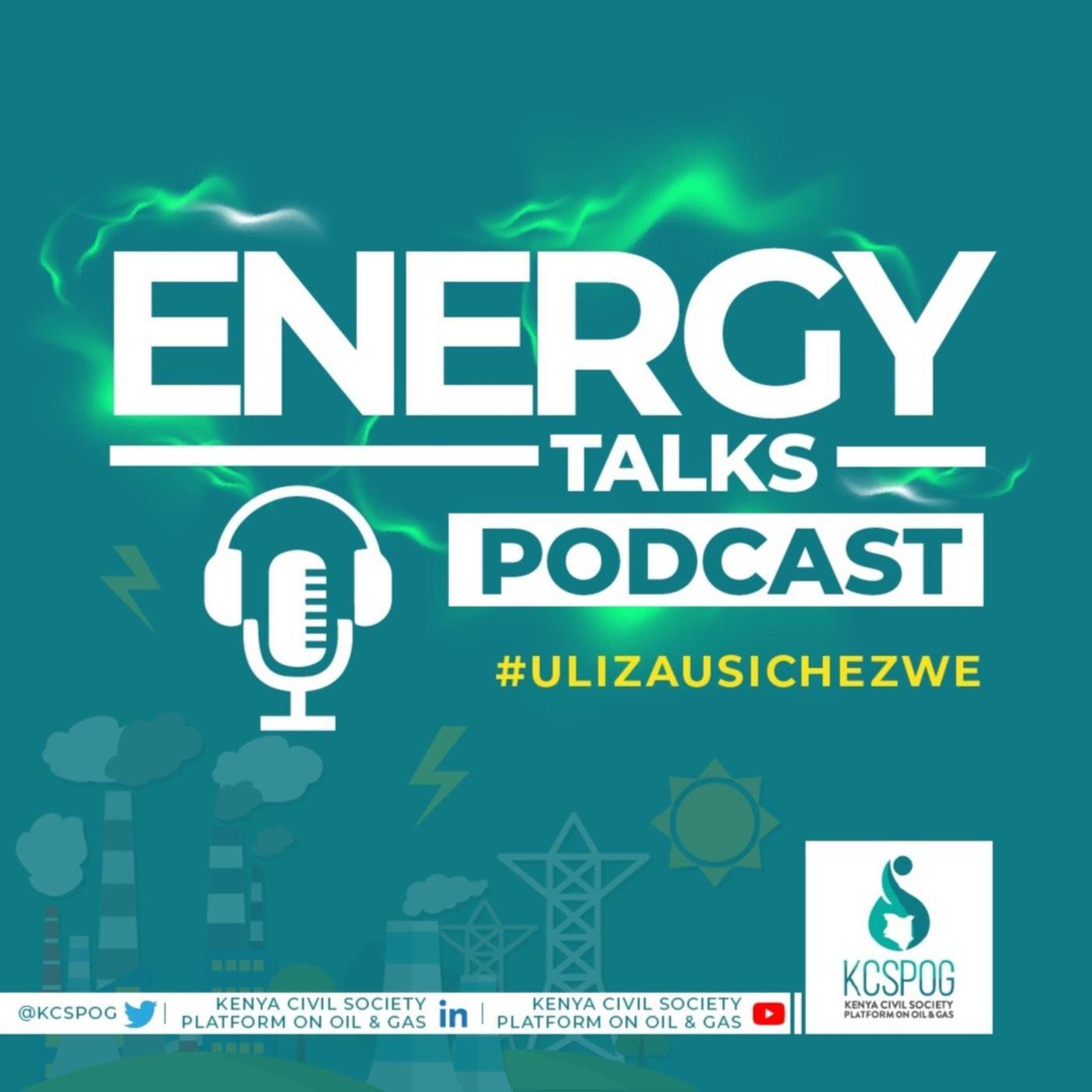
Energy Talks is part of KCSPOG's #Ulizausichezwe campaign transparency campaign started in December 2019. Uliza Usichezwe is a Kiswahili phrase literally translated to 'Ask Don't Get Played' it is aimed at creating citizen demand for transparency and promoting dialogue on issues within the Oil and Gas sector. The podcast will target having informed conversations with key stakeholders on Kenya’s oil discovery; its impact to the communities and country at large; cost of production and distribution; and the role of citizens and CSOs in decision making in the sector, among others.
This is Episode 5 of Season 2 of Energy Talks where we are joined by Kate Mavuti, who is an Advocate of the High Court of Kenya and has a masters degree in Oil and Gas Law. Platform Coordinator, Charles Wanguhu and Kate Mavuti discuss multiple issues in the extractives industry such as the role of academia in the sector, and many others.. What are your thoughts? Comment down below. Thank you for watching.
We’d like to acknowledge DANIDA/ Danida Fellowship Centre (DFC) as the funder to Kate Mavuti’s PhD under 'Realising the SDGs: the Role of Responsible Business' project that Strathmore is currently undertaking.
This is Episode 4 of Season 2 of Energy Talks where we are joined by Stephen Kuria, Chair of the Mineral Rights Board, Kenya.
Platform Coordinator, Charles Wanguhu and Stephen Kuria discuss a myriad of issues in the extractives industry as well as Stephen's own journey.
This is Episode 3 of Season 2 of Energy Talks where we are joined by Faith Alubbe, CEO of the Kenya Land Alliance. Platform Coordinator, Charles Wanguhu and Faith Alubbe delve deep into the big connection between land and oil and gas activities.
What are your thoughts? Comment down below. Thank you for watching.
This is Episode 2 of Season 2 of Energy Talks where we are joined by Kwame Owino, the CEO of the Institute of Economic Affairs Kenya. Platform Coordinator, Mr. Charles Wanguhu and Mr. Kwame Owino delve deep into issues surrounding Price Control, and Taxation, of petroleum products in Kenya.
What are your thoughts? Comment down below. Thank you for watching.
In this episode, Fatma discusses the benefits of being an EITI member states in putting in place frameworks to: bring all players on the table to foster dialogue; enhance monitoring of domestic revenue; promote environmental and social disclosures; promote contract disclosure. She calls for Kenyans to leverage on the experiences of its predecessors is enhancing implementation of transparency and accountability laws. She also highlights entry points for Civil Society Organizations in promoting adherence to transparency and accountability legislation & explains how they can be more effective in advocating.
In this episode, Noreen Kidunduhu discusses the adequacy of legislation relating to Transparency and accountability detailing challenges in implementation and enforcement including: availability of information; and confidentiality clauses. She also maps out some key benefits of Kenya joining EITI and other global transparency initiatives as a tool to enhance effectiveness of the policies and legislation. Further, Noreen expresses her thoughts on energy transition, renewable energy, and gender equalizing opportunities.
In this episode Michelle Boit expounds on her 13 years of experience in the Oil and Gas Industry detailing her professional experience working for BP America, Tullow Oil-East Africa and Glencore. She speaks about operationally, harsh working conditions and use of short term contracts presenting a challenge to staff retention in the sector; local availability of required technology; opportunities for local content ranging from technical capacity building to service provision; gender inclusion and challenges arising in terms of travel commitments among other professional requirements; the value of technical and professional mentorship for up and coming professionals; and Kenya's Energy Transition.
In this episode Angela details her experience working for the Kenya Civil Society Platform on Oil and Gas (KCSPOG) alongside other NGOs and CSO on both local and international policy research and advocacy. In particular she describes her experience working on Environmental and Social Impact Assessments (ESIAs) in collaboration with Oxfam in Kenya and Transparency International Kenya, and progress made in advocating for access to information within the sector.